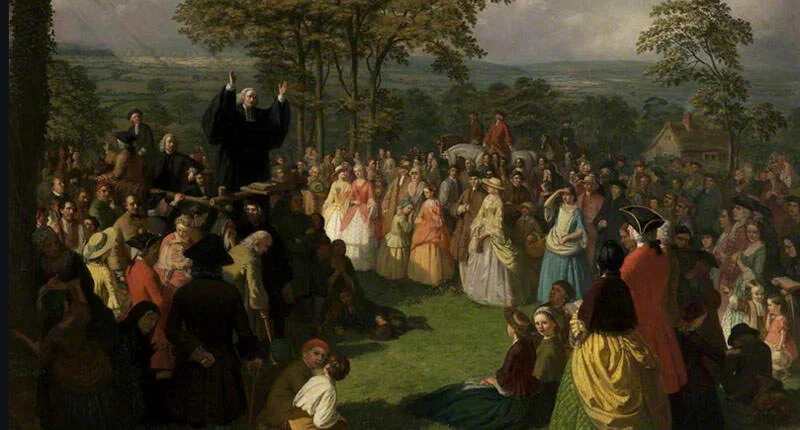Know Your Roots is a four-part video series that originates in a 1991 lecture at Trinity Evangelical Divinity School, addressing the (then, as now) pressing questions surrounding Evangelical identity. This 1991 lecture, jointly sponsored by Trinity Evangelical Divinity School and Intervarsity Christian fellowship, features Carl Henry and Kenneth Kantzer. These two prominent Evangelicals were not merely observers of an emerging movement, but key participants in its development. In the lectures and discussions featured in this series, Henry and Kantzer share both their understanding of the “turning points” in the movement over the second half of the twentieth century and their sober hope for, in the words of Don Carson, a “useful, productive and god-glorifying future.”
Below is the video of the two lectures, accompanied with a brief description of the content of each discussion (the third and fourth parts were posted in an earlier blog).
 Part 1: Kenneth Kantzer on Evangelicalism
Part 1: Kenneth Kantzer on Evangelicalism
While defining evangelicalism in broad terms virtually synonymous with protestant orthodoxy (following a material principle regarding a proper understanding of the person and work of Jesus Christ and a formal principle of Scripture as final authority), Kenneth Kantzer argues that a significant “turning point” in contemporary Evangelicalism is found in what David Moberg called “The Great Evangelical Reversal” and the movements that would latter emerge as a result.
Part 2: Carl Henry on Evangelicalism
Carl Henry defines American Christianity/ Evangelicalism against the historical backdrop of Modernism and orthodox Christianity’s slide from cultural credibility. Henry emphasizes Liberalism’s and Neo-Orthodoxy’s failure not only to give a credible account of Christianity in the face of the Modern world, but also its inability to maintain its Christian bearings. In contrast, Evangelicalism arose in the twentieth century as a credible intellectual account to the enduring truth of biblical Christianity.
Quotable:
Kantzer: “The Public square … was left naked of a Christian presence. And evangelicalism was relegated, in the popular mind, to the status of endangered species, about to join the dodo and the dinosaur.”
Henry: “It is precisely Dr. Kantzer’s stand for the truthfulness of scripture, for the importance of a full-orbed Christian world life view, and for bold fulfillment of Christ’s missionary mandate in our pluralistic society that has made Trinity a significant factor in American Christianity.”
Henry: “Our century has comprised one on of the most dramatic turning and churning times in the history of humanity. Nowhere in the religious history of the West have the control beliefs of society changed as swiftly and as radically as in our twentieth century struggle between theism and naturalism; that is, between the view that the universe owes its being to a supernatural creator and judge and the contrary view that existence as a whole is reduibile to impersonal processes and events.”
Henry: “Secular humanism, unable to sustain the elements of humanitarianism that distinguish it from blatant naturalism, is declining toward cultural nightfall and end-time. The century that began with unbridled optimism, rising from flawed assumptions of the essential goodness of man and the inevitability of progress, is now ending with an anti-theistic gridlock on the influential cultural centers.”
Henry: “Today Evangelical Christianity recognizes – and fortunately so – the legitimacy and necessity of both evangelism and social concern, even if it may not as of yet coordinated them in a universally acceptable way.”
Henry: “Whatever mistakes were made – and there were many – whatever opportunities had been missed – and these too were many – Evangelical Christians had carried to the nation the sure confidence that all biblical realities remain in place, that God’s promises have not been nullified, and that the life-transforming dynamic of the gospel of Christ is as powerful as ever.”
Henry: “Whereas what passes for Modernity soon calls for Postmodernity, the truths of the bible remain an unrivaled and abiding stimulus for constructive cultural engagement and for a personal walk with God.”






Comments
Be the first one to make a comment!